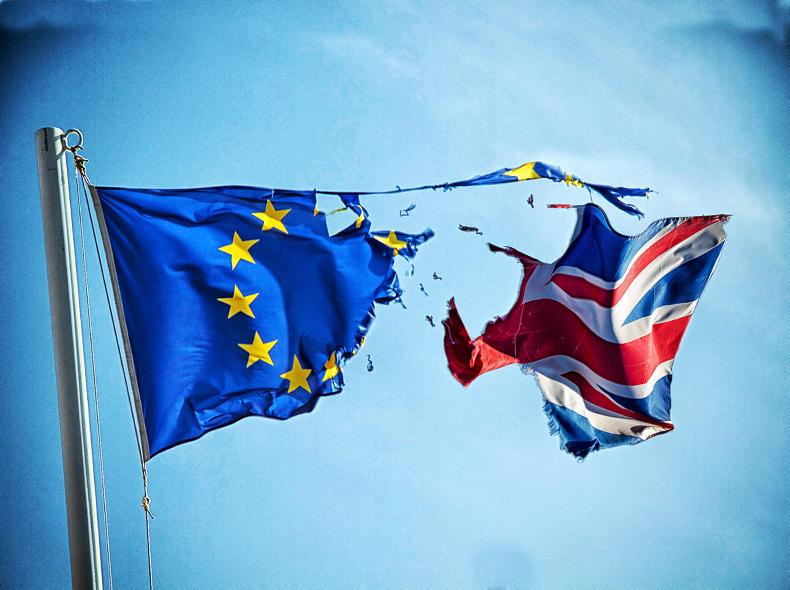It has been clear for some time that the UK’s desire to depart the EU’s customs union will make it difficult, and perhaps impossible, to achieve a ‘‘frictionless’’ land border in Ireland. The customs union provides for tariff-free trade within the EU and common tariffs on goods entering from outside Europe.
All EU countries are members of the customs union and the UK will detach itself from the arrangement, which facilitates circulation of goods without customs inspection, on 29 March 2019. But it was open to the UK to signal its intention to stay aboard, through a deal which would see it become an external participant. Turkey, not an EU member, has a customs deal with the union, although it falls short of frictionless trade.
This has been repeatedly ruled out: the UK government believes that it can negotiate important new trade deals outside Europe once free of the constraints of customs union membership, with different (presumably lower) tariffs on non-EU trade. These tariffs are not in the main very high at present but Britain has established a whole new government department, led by Dr Liam Fox, to pursue the better deals it believes to be available.
Dr Fox’s optimism about what can be achieved is not widely shared: the Confederation of British Industry has expressed its doubts but it would require a major climb-down to accept the common external tariff through continuing as a pavilion member of the customs union.
Dr Fox would be out of a job and the dream of these lucrative new trade deals would have to be formally abandoned. The tabloid press would scream ‘‘national humiliation’’: the new trade deals have been trumpeted by the Brexiteers as a principal benefit of quitting the European Union.
In last Friday’s Irish Times, economist John FitzGerald argued that a full British exit from the customs union inevitably means customs barriers on the border with Northern Ireland. It may be possible to minimise disruption with streamlined technologies but there would inevitably be delays, extra cost and incentives to smuggling. A customs barrier in the Irish Sea would create even bigger problems – far more trade crosses the Irish Sea than crosses the border.
He concluded that the Irish government should favour the UK staying in de facto membership of the customs union, since a hard border in Ireland will otherwise be unavoidable.
On Tuesday, the UK government finally revealed its opening position on the customs union issue. It is a flimsy document and fails to clarify anything of substance. There has been, since the referendum result 15 months ago, a rift between those favouring a complete breach in trading relationships with the EU and those anxious to minimise economic dislocation through staying in the single market and customs union.
Quitting the single market, which means the reintroduction of non-tariff barriers, is inevitable if Britain wishes to control immigration from continental Europe. The EU insists that free movement is part of the single market package. But departure from the customs union is a choice the British appear to have made, in the belief that valuable trading opportunities outside Europe are being passed up.
This explains the two alternatives offered for a transitional customs regime after Brexit day on 29 March 2019. There will either be an immediate departure from the customs union, with reliance on streamlining of import and export procedures, or an interim period of perhaps two or three years in which Britain will remain externally attached to the customs union. The latter sounds the more attractive option from the business standpoint but it is fraught with difficulties. As the chief EU negotiator Michel Barnier has pointed out such a deal would have to be negotiated (there is no simple template) and it would not yield frictionless trade – outside the single market, the non-tariff barriers would ensure plenty of frictions. Moreover, there would be problems with a Britain, inside the common external tariff, negotiating new trade deals outside the EU during the transition period.
Some of the language employed in the UK discussion document is revealing. After extolling, yet again, the prospects for great new trade deals outside the EU, the document goes on: ‘‘To capitalise fully on those opportunities, the UK will need an independent trade policy, with the freedom to set for ourselves the terms of our trade with the world.’’ How can the UK expect to ‘‘set for ourselves’’ the terms of new trade deals to be negotiated with counterparties which will have their own priorities, and limited incentives to make concessions? The retention of an open border in Ireland really requires that the UK abandons the fantasies about a trade bonanza outside Europe and decides to stick permanently with the customs union. The Irish Government may now insist on this.






 This is a subscriber-only article
This is a subscriber-only article










SHARING OPTIONS: